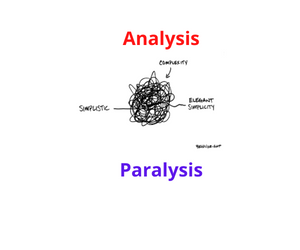Local: where we are, where we live, where we spend our time. Something so close is something we are likely to care about quite a lot. Digital and perhaps Blockchain aka DLT could make a big difference to our experience.
The services in our local village, just outside Zurich, are important to our family. We really appreciate our local village store and the incredibly good butcher shop it has. We prefer shopping there rather than the big chain stores we also have; we like the familiarity. The family schedule and the volume of shopping needed with two teenagers means we prefer to use an on-line service with delivery for the main shop. But, we try hard to spend locally too.
The same general theme is true of how we view the stores in the mountain village where we have a holiday home. We really value the local supermarket that is open on weekends and the sports store that is there to help with skis and servicing.
In both cases, we go out of our way to spend money locally and support our local stores, as well as the local restaurants. Neighbours, who are actual local residents, tell us we are there a lot. The same is not true of all the other second home owners with homes in holiday resorts. Around us, there are a lot of places which are rarely used.
These so called “cold beds” are of negative value to the community; roads have to maintained and cleared of snow in winter, utilities have to be on hand. The same is true of absentee owners of nice houses and flats in London, or wonderful holiday resorts like St. Ives.
For some time, I have been musing on how a local currency could help ease the situation. The advent of digital and DLT offers an opportunity to easily help local communities.
The motivation for having a second home varies. In London, overseas investors are often speculating on property price increases. In other cases, even if upside might be limited, if the cost of keeping the second home is very low, there is no pressure to sell. This is true of many of the second homes in the mountain village where we live; local taxes are negligible and the annual “resort fee” (Kurtax) is only some $500.
Imagine the local community charged me an annual fee of 10x that, $5,000, but in exchange gave me “local vouchers” which could only be spent locally and had an expiry date. If I buy my ski gear, the lift passes and eat locally, I will easily use the money. Then it is not a tax. If I am an absentee owner, do not use the vouchers and they expire, it is a tax. In both cases, the local community benefits.
Of course, there is a second degree of difficulty when it comes to rental property. Bear with me, not least because one of the wise minds who writes for Wired magazine has shared some well argued thoughts on the way local currencies could stimulate local economies and communities. See: “Say farewell to the Pound: millennials using the blockchain could lead to local currencies, “ by Amos Mieri, Mar 17.
Another potential positive outcome would be on the local vs. internet battle. A recent topic in Switzerland has been how people will “browse locally”, to understand and decide on a possible purchase and then use the Internet to source this at the best possible price. This consigns the locals to a role as an unpaid showroom.
Timing is everything. With some form of “paper vouchers” the thought above would be as awkward as the Luncheon Vouchers of my youth. The advent of digital offers a great ease of administration. The availability of DLT could potentially make this super easy.
Imagine our mountain community, Obervaz, collects 5’000 Swiss Francs from us and all the other non-residents with second homes. Digital technology would enable them to share my account and transaction details via an App and the Web.
The same technology could easily enable me to share some of that balance with guests who might use the house in the ski season. So, that means that second home owners are all on a level playing field, whether they only use the place themselves, rent out systematically, or have occasional house guests.
Now add DLT to the mix. Specifically, smart contracts. A major admin burden of “local” or “alternative” currencies such as Luncheon Vouchers or even the old Travellers Cheques (Gen X’ers and Millennials, please Google), was the unwashed items in circulation. The smart contract ability that DLT offers would allow for an expiry date on my balance.
“Use it or lose it”. Any unused balance at the end of the 2017 ski season expires and is returned to the community. At that point, it is a tax.
Lessons to be Learned: The combination of “local tax” with “local digital currency” could do a lot to support the local community. It could:
- Drive more money to be spent locally; this is really good. See the Wired article for details of the multiplier effect of local spending vs. shopping at big chain stores
- Ensure that there is a local contribution from absentee owners and landlords
- Help re-dress the rather worrying trend of browsing locally and then going on-line to get the cheapest deal
With that said, some caution is needed. Any form of local currency, even the old Luncheon Vouchers and Swiss Bankers’ Travellers’ Cheques, has something called “issuer risk”.
Before going mad with local currencies, a thorough understanding of this risk should be considered mandatory. That though, is a topic for next week’s post.
Happy Easter.
About the Author: I help banks master their post trade processing; optimising, re-engineering, building.
I understand the front-to-back and end-to-end impact of what banks do. That allows me to build the best processes for my clients; ones that deliver on the three key dimensions of Operations: control, capacity and cost.
Previous Posts
Are available on the 3C Advisory website, click here.
Publications
The Bankers’ Plumber’s Handbook
How to do Operations in an Investment Bank, or not! Includes many of the Blog Posts, with the benefit of context and detailed explanations of the issues. True stories about where things go wrong in the world of banking. Available in hard copy only.
Cash & Liquidity Management
An up to date view of the latest issues and how BCBS guidance that comes into force from Jan 1 2015 will affect this area of banking. Kindle and hard copy.
Hard Copy via Create Space: Click here
Amazon UK: Click here
Amazon US: Click Here
Share on:



